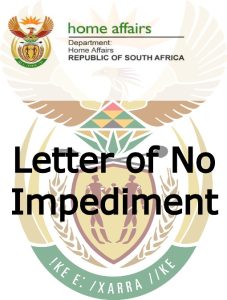In Summary
- Public documents with apostille certificates issued by a competent authority in the countries that are part of the Apostille Convention will be accepted by Canadian courts without the need for legalization.
- Private documents, such as powers of attorney from individuals or companies, still need to be notarized to become public documents. The apostille authority will verify the notary’s credentials, and then the document can be used in the destination country.
- Canadian diplomatic missions in the countries that are part of the Apostille Convention will no longer provide legalization services for public documents.

11 January 2024, the Convention of 5 October 1961 Abolishing the Requirement of Legalisation for Foreign Public Documents (1961 Apostille Convention) entered into force for Canada, following the deposit of its instrument of accession on 12 May 2023. Legalizing documents for submission to Canadian administration departments and courts within the required deadline has long presented challenges for foreign entities. This will significantly simplify the administrative procedures for recognizing official documents, vastly reducing the time and cost of authenticating foreign documents for use in Canada. This article explores Canada’s Apostille Convention, highlighting its benefits in simplifying the use of foreign documents, including acceptance requirements and authentication processes, and encourages readers to embrace this transformative change.
What is the Apostille Convention?
The Apostille Convention, established in 1961, aimed to simplify the authentication process of public documents across international borders. This convention introduced the Apostille certificate a standardized method of authentication affixed by a competent authority in the originating country. This certificate validates the document’s legitimacy for recognition and acceptance in another member country without the need for additional legalization procedures.
With the Apostille Convention now in effect in Canada, individuals and businesses can simplify the challenging process of validating documents for international use. According to HCCH (Hague Conference on Private International Law – Conférence de La Haye de droit international privé), an intergovernmental organisation, The Apostille Convention has applied in over 126 countries and territories worldwide, including Hong Kong SAR and Macao SAR.
Canada’s Accession to the Apostille Convention: Simplifying Document
Authentication before Canada’s involvement in the Apostille Convention, obtaining foreign documents for administrative purposes required a cumbersome authentication and legalization process. This involved notarizing the document by recognized authorities, validating it through the relevant government office, and subsequently legalizing it by the Canadian embassy, consulate, or diplomatic mission. The process was time-consuming, and expensive, and required physical submission to government offices and diplomatic missions for acceptance in Canadian courts or administrative proceedings.
Apostille Convention now in effect in Canada will simplify the process of validating foreign documents for Canadian courts and administrative purposes. This streamlined approach eliminates multiple verification layers, time, and costs associated with obtaining a single standardized Apostille certificate from the competent authority in the document’s country of origin.

The Apostille Convention now in effect in Canada means that documents such as birth certificates, marriage licenses, notarized deeds, academic transcripts, and other public documents can be easily authenticated for use in over 126 member countries. This simplification substantially relieves individuals, professionals, and organizations engaged in international transactions or relocations.
Canada’s membership in the Apostille Convention will enhance document authentication for individuals and businesses, providing numerous benefits. For example, consider Sarah, a Canadian professional relocating to France. With the Apostille Convention’s streamlined process, she can effortlessly authenticate her academic transcripts with a single Apostille certificate, saving time and resources.
This simplified process ensures her documents meet the requirements for her new career abroad. Nonetheless, the Apostille Convention now in effect in Canada, has several significant advantages.
Requirements for Acceptance of Foreign-Produced Documents Authenticated by an Apostille
It is important to note that not all types of documents are covered by the Apostille Convention – only public documents, as determined by the laws of the issuing country. This means that certain documents may necessitate additional authentication procedures for acceptance by Canada. We recommend checking in advance with the relevant authority in Canada about specific requirements for format, content, time limit, translation, etc., before going through the relevant procedures.

From January 11, 2024, with the Apostille Convention now in effect in Canada, the authentication process will involve affixing a standardized apostille certificate to the document by competent authorities designated by the Canadian government. Canada’s adoption of the Apostille Convention simplifies foreign document authentication, reducing bureaucratic hurdles and costs. This move benefits individuals, businesses, and governmental bodies in international transactions, promoting efficiency in legal proceedings, commercial activities, education, and personal matters.
Global Apostille
Global Apostille is a Pretoria-based legalisation agency that assists corporations and individuals in getting apostilles and embassy legalization services in South Africa for documents to be used abroad. InGlobal Apostille offers affordable legalization and apostille services for South African documents, including Birth Certificates and Power of Attorney. We handle official translations and legalization processes, aiming to provide a hassle-free experience for clients. Contact us for more information.
Tel: 012 348 3134 | 081 347 6060
Email: info@apostillelegalisation.co.za









